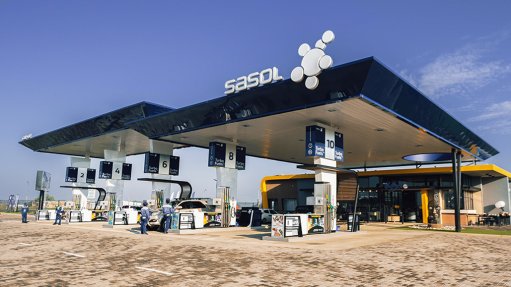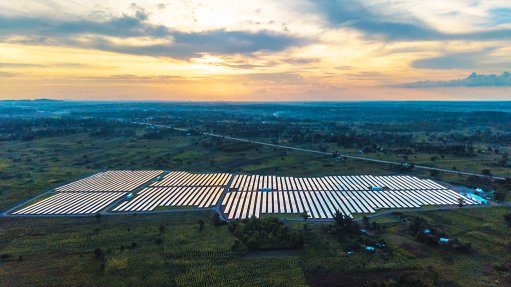Neasa raises concerns over AMSA’s service as it again questions protection
The National Employers Association of South Africa (Neasa) has accused steel manufacturer ArcelorMittal South Africa (AMSA) of inadequate service delivery, following a survey polling some of the country’s downstream steel companies.
Neasa CEO Gerhard Papenfus said in a statement that the industry, in general, had complained about late deliveries, imported steel duties and AMSA steel not meeting industry standards.
Sixteen companies that claimed to be affected by AMSA’s service delivery responded to the survey. Of these, eight indicated that they were affected by late deliveries, ten indicated that they were compelled to import products not manufactured by AMSA and eight indicated that AMSA’s steel did not meet industry requirements.
Neasa highlighted, however, that the survey had to be interpreted in context – that is, that only a small percentage of companies in the steel industry buy directly from AMSA and that certain companies affected by a lack of service preferred “not to participate in the survey in the light of AMSA being their dominant supplier” and a fear of being victimised.
Papenfus added that, as AMSA’s clients were often “plagued by backlogs”, additional safeguard duties on certain steel products were “immoral”.
“Over and above the 10% duty that has been placed on most steel products, AMSA has requested government to introduce a further 12% safeguard duty on hot-rolled coil, which will result in a total duty of 22%,” he explained.
WithdrawalIn a previous survey, 2 137 downstream steel companies confirmed that they supported the withdrawal of the 10% duty and were “vigorously opposed” to any further safeguard duties, with Papenfus noting that scrapping these duties would “put a halt on the carnage of job losses in the downstream industry”.
In response to questions raised by Engineering News about Papenfus’s claims, AMSA noted that, with the increase in exports stemming from China, the rest of the world reacted quickly and closed their doors on imported steel by implementing tariffs and other protection measures.
“Africa, unfortunately, was slow to react. Hence, Africa and South Africa became the destination for Chinese steel,” replied an AMSA spokesperson, adding that 18 countries currently have trade cases against China, while another 27 initiated investigations in 2016.
AMSA claimed that the impact of this was twofold, with imports from China into South Africa going up six times in six years, which, in a stagnant economy, had been at the cost of local production.
“Also, South Africa’s traditional export destinations have absorbed the flood of cheaper Chinese products, thereby reducing demand for South African production and emphasising the importance of the domestic market,” the company noted.
CompromiseAMSA further argued that withdrawing the 10% import duty would compromise all the positive initiatives it had brought forward.
“The purpose of the protection measures is to restore the unfair trade circumstances and to protect the domestic steel industry. These cannot be considered in isolation, with other initiatives granted by government in exchange for the 10% import duty,” AMSA said.
This includes fair pricing principles, ensuring a significant benefit to the downstream industry – particularly when the steel industry emerges from the current down cycle – and a commitment by AMSA to spend R4.6-billion over a period of five years, on not closing its plants and preserving jobs to the extent that it is feasible and that the market allows for it.
AMSA further noted that State infrastructure development projects would assist the entire steel industry, with the steel producer willing to partner with smaller entities to the extent that needed to enable broader participation in strategic projects.
AMSA added that safeguard duties on cold-rolled coil products were still under investigation.
“With no primary steel producer or downstream manufacturing capability, South Africa will be solely reliant on imports, becoming purely a consuming nation, as opposed to a manufacturing country – losing skills, revenue and jobs in the process. Therefore, the focus of the steel industry should be a mutually beneficial collaboration to ensure its long-term sus- tainability and success,” AMSA argued.
Comments
Press Office
Announcements
What's On
Subscribe to improve your user experience...
Option 1 (equivalent of R125 a month):
Receive a weekly copy of Creamer Media's Engineering News & Mining Weekly magazine
(print copy for those in South Africa and e-magazine for those outside of South Africa)
Receive daily email newsletters
Access to full search results
Access archive of magazine back copies
Access to Projects in Progress
Access to ONE Research Report of your choice in PDF format
Option 2 (equivalent of R375 a month):
All benefits from Option 1
PLUS
Access to Creamer Media's Research Channel Africa for ALL Research Reports, in PDF format, on various industrial and mining sectors
including Electricity; Water; Energy Transition; Hydrogen; Roads, Rail and Ports; Coal; Gold; Platinum; Battery Metals; etc.
Already a subscriber?
Forgotten your password?
Receive weekly copy of Creamer Media's Engineering News & Mining Weekly magazine (print copy for those in South Africa and e-magazine for those outside of South Africa)
➕
Recieve daily email newsletters
➕
Access to full search results
➕
Access archive of magazine back copies
➕
Access to Projects in Progress
➕
Access to ONE Research Report of your choice in PDF format
RESEARCH CHANNEL AFRICA
R4500 (equivalent of R375 a month)
SUBSCRIBEAll benefits from Option 1
➕
Access to Creamer Media's Research Channel Africa for ALL Research Reports on various industrial and mining sectors, in PDF format, including on:
Electricity
➕
Water
➕
Energy Transition
➕
Hydrogen
➕
Roads, Rail and Ports
➕
Coal
➕
Gold
➕
Platinum
➕
Battery Metals
➕
etc.
Receive all benefits from Option 1 or Option 2 delivered to numerous people at your company
➕
Multiple User names and Passwords for simultaneous log-ins
➕
Intranet integration access to all in your organisation


















